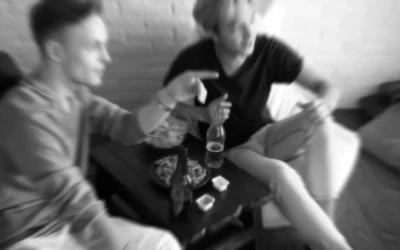When you're in recovery, deciding what to drink in social settings can sometimes feel tricky. Alcohol-free...
Addiction
read more
Tips to Stay Sober During the Holidays
The holidays are a time for connection, celebration, and reflection, but for those in recovery, this season...
Veterans Day: PTSD Treatment and Addiction Programs with CRC
On November 11, we honor and remember our veterans for their sacrifices and acknowledge the challenges they...
Signs You May Need Mental Health and Addiction Treatment
When mental health challenges and addiction overlap, it can be challenging to know when a dual diagnosis...
Link Between Mental Health and Substance Use Disorder (SUD) – Depression Awareness Month
October is Depression Awareness Month, a critical time to highlight the important connection between mental...
Trauma in Addiction Recovery: The Importance of Trauma-Informed Care
Trauma plays a significant role in the development of addiction. Many individuals struggling with substance...






